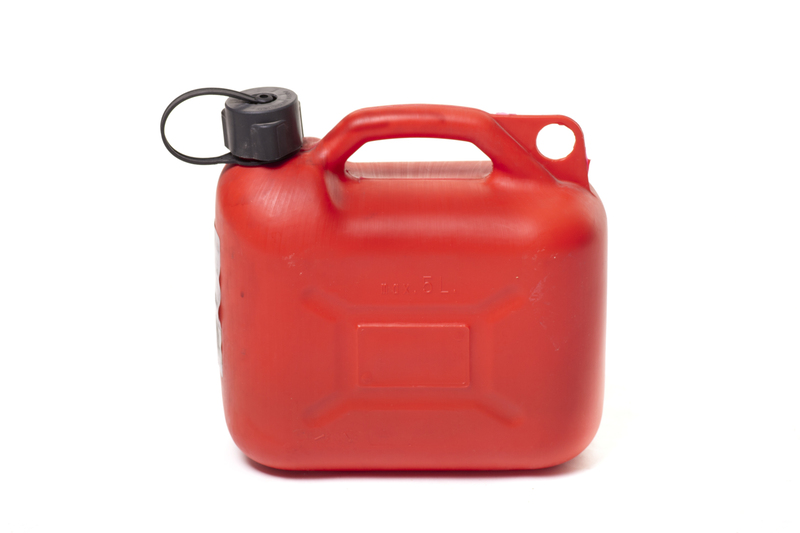Best Practices for Maintaining a Freezer During Long-Term Storage
A well-maintained freezer is crucial for preserving your food, saving money, and ensuring food safety--especially when planning for long-term storage. While these appliances are built for durability, people often neglect vital maintenance steps, leading to unexpected failures or inefficient performance. If you want your freezer to serve you reliably over the years and keep your food in premium condition, following best practices for freezer maintenance during long-term storage is essential.
Why Proper Freezer Maintenance Matters
Every freezer, whether chest or upright, residential or commercial, is designed to store food at sub-zero temperatures for extended periods. Without proper upkeep, freezers can develop issues such as frost buildup, mold, inefficiency, and premature failure--all of which compromise the safety and quality of your stored goods. Effective freezer care not only prolongs the life of your appliance but also provides peace of mind when storing food for months or even years.

Preparing Your Freezer for Long-Term Storage
Before starting any long-term freezer storage, it's essential to take preliminary measures. Preparing your freezer correctly will help prevent common issues from arising and maintain the appliance's optimal functionality over time.
1. Thoroughly Clean the Interior and Exterior
- Unplug the freezer: Always disconnect your freezer from the power source before cleaning to avoid electrical hazards.
- Remove all items: Empty the freezer, storing any perishable goods elsewhere for the time being.
- Defrost if necessary: If there's significant frost buildup, allow the ice to melt naturally or use the defrost setting if available. Use towels to soak up excess water.
- Clean the surfaces: Wash shelves, bins, and the interior walls with a solution of mild soap and warm water. Avoid harsh chemicals that can damage surfaces or impart odors.
- Ensure dryness: Thoroughly dry all surfaces before replacing components to prevent mold or bacteria growth.
2. Inspect Seals and Gaskets
Your freezer's gaskets (rubber seals) are the frontline guardians against cold air escaping and warm air entering. Over time, these seals can become dirty, cracked, or lose their elasticity. To ensure long-term freezer efficiency:
- Clean gaskets with soapy water and a soft cloth.
- Check for signs of wear, tears, or warping.
- If the seal does not create a tight fit, replace it to maintain optimal performance during long-term storage.
3. Organize and Package Foods Properly
Quality packaging is crucial for long-term food freezer storage. Follow these guidelines:
- Choose airtight containers or heavy-duty freezer bags to prevent air exposure and freezer burn.
- Label all items with the date of freezing and contents for easy inventory management.
- Portion foods before freezing for more convenient thawing and usage.
Best Practices During Freezer Long-Term Storage
1. Set and Monitor the Correct Temperature
For maximum food safety and preservation, a freezer should be set and maintained at 0?F (-18?C) or lower. Use an appliance thermometer to regularly check internal temperatures, ensuring consistency over time, especially after power outages or heavy use.
2. Avoid Overpacking and Underfilling
Proper airflow is essential in keeping the temperature uniform across all areas of the freezer. Overfilling can block vents, while an underfilled freezer will lose cold air too quickly during door openings.
- Maintain a balanced load by keeping the freezer about 70-85% full.
- Use baskets or bins to organize and facilitate circulation.
- During lean periods, fill empty spaces with water-filled containers to help stabilize temperatures.
3. Defrost Regularly (If Not Frost-Free)
If you have a manual-defrost freezer, periodic defrosting is vital. Too much ice buildup reduces efficiency, increases energy use, and can damage the appliance over time. When frost exceeds about a quarter-inch thickness:
- Unplug the freezer and remove all items.
- Allow ice to melt naturally and avoid using sharp objects that could puncture the liner.
- Clean and thoroughly dry before restarting.
4. Keep the Freezer in an Appropriate Location
Where you place your freezer impacts its performance, especially for long-term storage:
- Maintain a stable ambient temperature: Garages or sheds that experience seasonal extremes can strain your freezer's compressor and result in inefficiency or malfunction.
- Ensure space for ventilation: Position the freezer with a few inches of clearance on all sides to allow heat dissipation from the coils.
- Protect from direct sunlight and moisture to prevent overheating and rust.
5. Conduct Routine Inspections
Even during periods of extended storage, set a schedule to check your freezer every 1-3 months:
- Check seals, odors, and internal temperature.
- Inspect for signs of pests, moisture leaks, or excessive frost.
- Listen for unusual noises that could indicate a mechanical problem.
6. Clean Condenser Coils and Fans
Behind or beneath your freezer are condenser coils and sometimes a cooling fan. Dust and pet hair can accumulate here, hindering proper heat dissipation and increasing the compressor's workload.
- Every 6-12 months, unplug the unit and carefully vacuum or brush away debris from the coils and the fan.
- Be gentle to avoid damaging any components.
Special Considerations for Chest and Upright Freezers
Both chest and upright freezers have their own strengths and unique maintenance requirements:
Chest Freezer Maintenance Tips during Extended Storage
- Chest freezers generally maintain their cold temperatures better due to their top-opening design. This makes them ideal for long-term bulk storage.
- Protect against odor absorption by lining the inner walls with baking soda or activated charcoal.
- Chest freezers often require manual defrosting. Stay on top of ice buildup and schedule regular cleaning.
Upright Freezer Maintenance Recommendations
- Upright freezers are more accessible but may lose cold air faster when opened. Minimize door openings and organize for efficiency.
- Pay extra attention to door gaskets and hinges. Clean and lubricate as needed.
- If frost-free, check the drainage system and clear any blockages.
Dealing with Power Outages During Long-Term Storage
Unexpected power failures can be disastrous for long-term freezer storage. Here's how to minimize risks:
- Keep the door closed as much as possible: This helps maintain internal temperature for up to 48 hours (full freezer) or 24 hours (half-full).
- Invest in a freezer alarm or smart monitor: These devices alert you to temperature fluctuations or power interruptions.
- Consider a backup power supply: A portable generator can keep your freezer running during extended outages.
- Place ice packs or dry ice inside to help retain cold temperatures. Follow manufacturer guidelines when using dry ice.
Common Mistakes to Avoid When Using a Freezer for Long-Term Storage
To ensure optimal freezer performance during long-term use, steer clear of these frequent pitfalls:
- Neglecting regular cleaning: This invites unwanted odors, mold, and contamination.
- Forgetting to inspect seals and temperature: Both are critical to preventing energy loss and food spoilage.
- Storing hot or warm food: Always cool foods to room temperature before freezing to avoid elevated internal temperatures and increased ice buildup.
- Using subpar containers: Poor packaging leads to freezer burn and compromises food texture and taste.
- Ignoring the manufacturer's maintenance guide: Each freezer model may have specific care requirements. Always consult your manual for tailored advice.
Extending the Life of Your Freezer During Long-Term Storage
Caring for your freezer isn't just about safeguarding the contents--it's also a wise investment in the appliance itself. By observing these best practices for freezer maintenance during long-term storage, you can:
- Reduce energy consumption and save on utility costs
- Minimize unexpected repairs and appliance downtime
- Protect the nutritional value and taste of your frozen foods
- Extend your freezer's functional lifespan

FAQs: Freezer Maintenance for Long-Term Storage
How often should I clean my freezer if used for long-term storage?
At a minimum, clean your freezer thoroughly every 6 to 12 months, or immediately if you notice odors, spills, or excessive ice buildup.
Is frost-free better for long-term freezer storage?
Frost-free freezers require less manual maintenance and are convenient. However, manual defrost models often maintain a more consistent temperature--crucial for some sensitive foods.
What temperature is best for long-term food storage in a freezer?
Always keep the freezer at 0?F (-18?C) or below for optimal food safety and quality.
Can I store a freezer unplugged during long-term non-use?
If storing a freezer while unplugged, clean and fully air out the interior. Place a box of baking soda inside to absorb any residual odors, and prop the door open slightly to prevent mold growth.
How do I prevent freezer odors during extended storage?
Use airtight packaging, clean spills promptly, and periodically place an open container of baking soda or activated charcoal inside to neutralize odors.
Conclusion: Keeping Your Freezer Reliable for the Long Haul
Whether you use your freezer for bulk meal prep, seasonal harvests, or emergency storage, long-term freezer maintenance best practices ensure your investment delivers maximum value. A combination of routine cleaning, temperature monitoring, proper food packaging, and location consideration helps keep your appliance running smoothly--and your food safe and delicious.
By implementing these guidelines, you'll enjoy peace of mind knowing that your freezer is always ready for the demands of long-term food storage. Regular upkeep today means years of reliable, energy-efficient service tomorrow.



